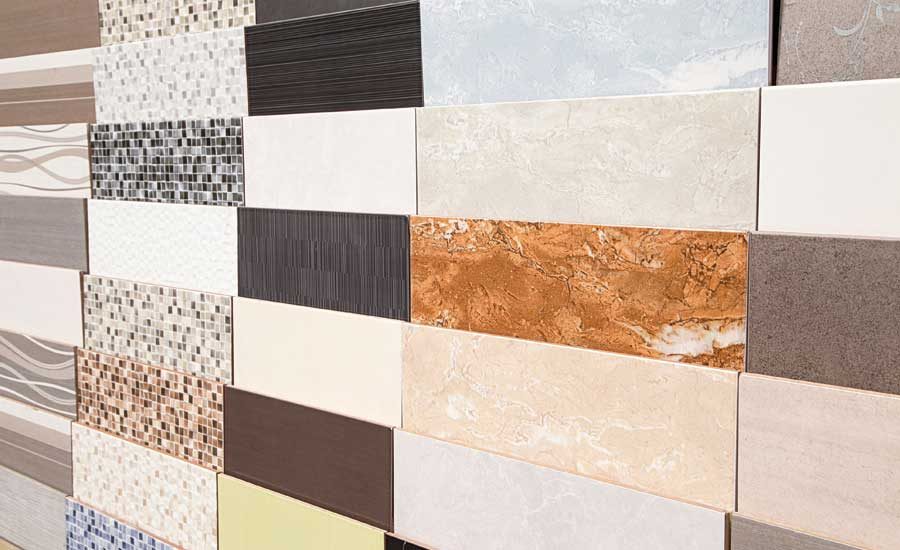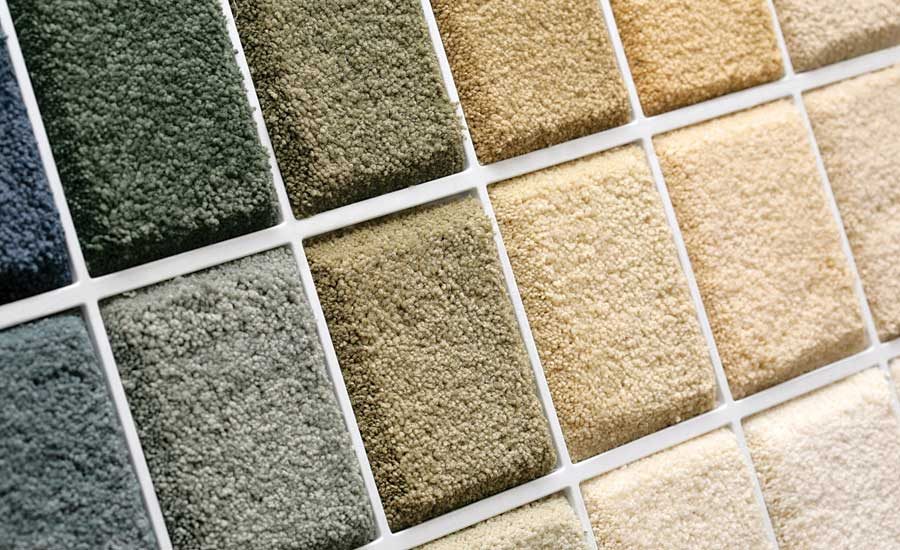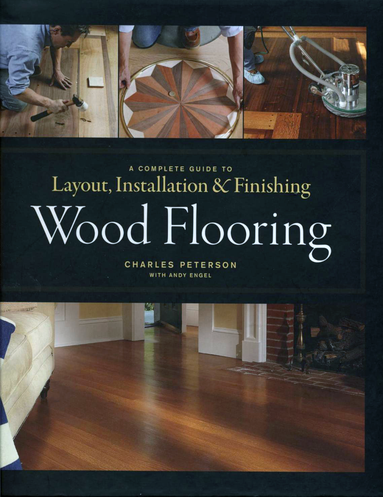Sample Checkouts: A Reader's Point of View






Sometime back I wrote an article that considered the pros and cons of checking samples out. The article generally endorsed the policy of checking samples out to our customers when needed. Below is a differing opinion from a reader on this issue followed by my response to those comments. Keep in mind, my response discusses only points that were not addressed in the original article, but I believe should have been included. You can find that original article in the June 2016 Floor Trends online archives.
Buddy,
Hi and good day. I read your article on Flooring Samples – Another Point of View. As I am sure you well know, this is an old debatable topic that has been in our industry for many years. Your article is a good one, and one that still raises questions.
Looking at it from the other way, when any customer walks into any of my stores with a sample. I start licking my chops. The customers’ sample is defenseless. It could be a 10-ply nylon type 6.6 and I’d tactfully show her many reasons why our product is superior.
My take is this: Usually, if a customer wants to take a sample home I offer to follow her home and measure. If the customer is in the store after 6:00 p.m., I would let them take the sample home, and I would offer to pick it up on my way into work the next morning. If it’s the situation where it becomes, “I’ll check the sample out or she goes elsewhere,” it becomes a tougher decision. Another possibility is to drop it off at her home on your way home. “Ma’am that’s one of our best sellers.”
When I think back when lending samples out, I cannot tell you how many times the husband would race into the store in the next few days acting like he’s in a rush, saying,” I am dropping this off for my wife.” When we tried to ask the husband how she liked it, usually he would shrug his shoulders and say, “Call her. I have no say in this matter.”
Sometimes you win, sometimes you lose. We could backtrack further and say if your staff is highly trained and makes such an impression on their customer then hopefully she’s so sold on her sales consultant, you win.
I think it’s a great topic, and I am going to ask some of my friends what they do and get back to you again.
Great input! Your points are good ones as well. In fact, your comments propose tough questions we must all consider. Realistically, I have never been able to make a no sample check out policy work for me without some significant complications. You mentioned that my article still raises many questions, and I believe you are right.
You mentioned that when a customer brings a competitor’s sample into your store that you start “licking your chops,” but, realistically, how often does that happen? In the 35 years that I have sold flooring, seldom does it happen. If they do not bring the sample in, I might ask her to bring in the sample so I can discover what she likes and does not like, and then find a more suitable choice. However, if price is the only issue, I never know what she is going to tell me or show me. She may be dealing with a cutthroat dealer selling out of a storage unit. Further, the customer may be untruthful about the actual price my competitor is quoting. If that’s not enough, she usually brings in a selection which she is completely sold on and I am then obliged to improve upon a competitor’s sample that represents the perfect standard for her décor.
So, instead of focusing our efforts matching a particular sample, why not keep the choices open using our personality and design skills to recreate new choices? This may be easier than you would think, as most customers do not thoroughly understand price or construction differences. In fact, sometimes I don’t either, and if I don’t know, imagine the problem she’s having. Besides, price is rarely the central issue; it’s fashion.
Now, we could trash the quality, but apart from fiber, how does one go about this? Suppose she brings in a sample that she absolutely loves and we produce an equivalent or even an identical sample. First, how do you trash equivalent or identical? Further, if we produce a better-quality sample, is it because of the twist, density, etc., all of which affect styling as well as quality? Further, the sale has inherently become caveat emptor for the customer and so she may not trust anything you say. This is especially true when price has become the focus. I have seen salespeople tactfully try to demolish the quality of a competing sample and these salespeople often come off as biased, critical and unprofessional. Sometimes you can see the skepticism in the customer’s expression with her eyes rolled back as a salesperson pathetically tries to thrash a rivaling sample. Instead, try this: “If you like that, let me show you this.” Besides, today’s sophisticated customer is not stupid. If it is a quality sample, she probably knows it. In any event, bringing competitors samples into your store may get dicey at best.
A technique that I have used when customers tell me of an unreasoningly low price is to say, “I cannot sell you first-quality flooring at that price. Maybe they can, but I can’t.” Then remain silent. Do not directly accuse her retailer of selling seconds; just restate your personal dilemma if necessary. I especially use this tactic if the price quoted is below or close to my cost. Besides, sometimes the customer is just outright lying to you and this statement may tactfully call her bluff and allow her to save face while coming back to planet earth. I do not recommend this tactic except in unusual situations.
Another thing that is often brought up is that friends of the customer may beat up on the sample. Instinctively, many customers do not want to go it alone in their design choices even if they do trust you and respect your opinion. Understandably, that type of sharing among friends is just part of her shopping experience. I expect her to show the sample to her husband and others; this is sometimes just a prerequisite part of the trial and error process in making her final decision. And really, this is just another reason she may legitimately need to check out a sample.
If a friend incorrectly appraises the durability of the sample (as they sometimes do), then hopefully, if we have rapport with the customer, it gets discussed with the salesperson. I am not naïve here, and I realize that “hopefully” is a keyword. Still, this is a major purchase and she needs to be sure about her decision because she is going to have to live with her choice for a long time. Put yourself in her shoes.
You also mentioned the not-so-unusual situation where it becomes the deal breaker. She is steadfastly saying that she will go elsewhere if denied the opportunity to take samples home. Any other possibility is obviously unsuitable for this type of customer and often you have just spent considerable time with the prospect. So, to employ your own words, this situation not only makes it tougher, but a lot tougher when it becomes do, or I go elsewhere. If it is after store hours, as you mentioned, one problem with picking the sample up on the way into work the next morning is that it assumes that the customer wants to be disturbed at that hour (with a final decision), is at home, not at work or getting ready for work and has no other appointments. Not only that, customers often do not want to make a lasting decision so hurriedly. Personally, if anything, I would rather just follow her home that evening rather than deal with everything in the morning.
Regardless of the time of day, an approach of following the customer home, in lieu of sending a sample home first, is that its time consuming and may easily accomplish nothing. Once you’re at her home, she may not be perfectly satisfied with her selections. I could then pick up the samples and invite her back to my store for another look, but I never like to count on the dependability of be-backs. This is especially true now that she has no absolute reason to return to my store other than a devotion to me. Besides, with all the pressure about samples, she may want to shop at a store that allows her more freedom. I would, if I were shopping for flooring.
You further mentioned, “We could back track further and say, ‘If your sales staff is highly trained and makes such an impression on their customer then hopefully she’s so sold on her sales consultant, so you win.’” Well, isn’t that really a separate issue? Obviously, if your salespeople are not properly trained, especially at making a friend and warming up, your sales are going to suffer. However, if your salespeople are properly trained, then that point simply furthers my position for checking out samples.
In such a case, customers will be more likely to return to a trusted sales advisor as opposed to returning them with her children (or husband) with the car running ostensibly with no time to speak. Unfortunately, though, despite our best personality and selling skills, not all prospects are going to be loyal. Just because a customer likes us, does not necessarily mean they feel obliged to do business with us. Make no mistake though, most customers like to buy from people they like and trust.
Here is some interesting advice from another dealer. “From the beginning, allow your customers to understand your company policy about checking samples out, measuring and in-home estimates. Explain that we narrow down choices and then bring out the samples to the home for a no-charge estimate. This allows the customer to look at the samples in different lights. Various cost estimates between the different possibilities may be given and finally if everything is copasetic with the customer, we take a deposit with the balance due when the job is done correctly.” Sounds reasonable.
I agree with the concept, however, how are we going to respond when the customer barrages us with any number of objections, such as: “This is the first place I’ve shopped,” “I want to shop more than one place,” or “I don’t want to commit so quickly,” do you tell her to go elsewhere?
Sample loss is also inevitable. In my experience as a retailer, the principle cause of this lies with the salesperson. Salespeople must make it very clear to the customer how vital it is to have our samples returned quickly. Next, follow up your efforts with a user-friendly sample check out system. Of course, there are computer software programs where printouts of aged unreturned samples by salesperson can be utilized. Absent of that, here is a simple method I implemented when I owned a flooring store: Purchase a Rolodex with A-Z tabs. Then take ample blank cards and position them in the rear of the Rolodex for easy access. When checking samples out, put your name and the customer’s name and any notes on the front of the card and the names of the various samples checked out on the other side of the card and file them alphabetically. If you need to find a missing sample, simply review the backside of the cards on the Rolodex. It’s a simple process and it works.
Finally, I know all too well the frustration of a customer returning samples and saying they will be back and they don’t come back. Of course, we can always find holes and flaws with either do, or do not policy. Like you said, “Sometimes you win, sometimes you lose,” but I want my best chance at the sale.
No dealer or salesperson wants to have their samples showroomed when we employ considerable time, resources and overhead towards meeting the demands of our consumers only to have our products shopped unmercifully. It’s not just local competition either. There are Dalton jobbers with product crossover lists referencing mill and franchise private labels. Today’s flooring retailer also deals with online competition that drop-ships products to the customer’s door with no installation liability or accountable overhead to merchandise the product. Of course, much can be said to combat this competition, but we often do not get that chance. Ladies and gentlemen, if you want to have a policy of never, never, checking out a sample, I certainly appreciate your philosophies, but what are the overall detriments?
Looking for a reprint of this article?
From high-res PDFs to custom plaques, order your copy today!











